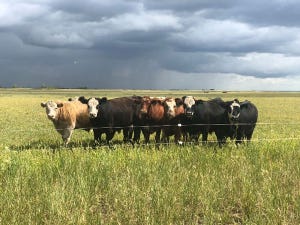Perfection as a ranch manager is not possible, but excellence is. Here are management and leadership tips to help you strive for excellence.
November 2, 2017

In recent columns, I have said that ranches can be profitable if managed according to sound principles. I then pointed out that it is difficult to find managers or to become managers that understand and know how to implement sound ranch management principles.
Along with seeking counsel from carefully chosen mentors, aspiring managers need to be somewhat self-directing in their life-long learning pursuits to get the breadth of skills and understanding necessary to be a fully competent manager. For those who do, there is tremendous opportunity in the world of farm and ranch management for those with strong intellect, work ethic and a passion for the business.
The college courses and follow-up internships that I recommended last month are designed to give breadth with the intent that you are prompted or directed to ask the right questions. It is far more important to know the right questions than to immediately know the right, or at least good, answers.
Having acquired good communication skills and an introductory knowledge of business principles and the sciences of agriculture, you are equipped to formulate the right questions, go to people who can help find answers and have the ability and basic knowledge to understand their answers and ideas. Wise neighbors, seasoned and successful managers, researchers and professors are among those that I sought out and would recommend. However, I like the word “teacher” better than “professor.” Find those who have researched and learned well and know how to teach.
The manager’s job is to create an environment in which people want to excel and then provide the tools training and freedom to do it. The creation of that “environment” will come about as you and your team create a strategic “shared vision” that drives an enthusiasm and excitement for future accomplishments.
The “shared vision” should define your future and lead you to excellence. It should be a team effort and result in opportunities for each team member to improve and have their own successes through the completion of objectives within the vision. Providing tools, training and freedom to do it lets people know that they are valued and can have input into their own success as well as the owner’s. People want more out of life than merely being a robotic extension of the boss. And, a good manager wants more from his team members than arms and legs and eight hours per day. A good manager also wants the heart and mind.
Many managers of small ranches are one man crews. They alternate in filling the roles of owner and CEO, foreman and work director and worker. It becomes important to know when and how often to wear each hat.
The important thing to know is that some jobs are worth a lot, say $100 per hour. Other jobs are important and critical mid-value efforts, say $30 per hour, and other jobs are not so important and are often preferred to avoid the more important jobs, say $10 per hour. Even when it seems like you are a one man or one woman crew, there are other stakeholders and helpers. Take advantage and make sure they are part of your team.
There is too much argument over the difference between a foreman and a manager. Both should have management capability; and, yes, there will be differences in both desire and capability to fill certain roles regardless of how they are defined.
Excellent managers will be characterized by the following:
Honesty and integrity: Your reputation with family, employees, customers, vendors and neighbors depends on it. Your sense of self-worth depends on it.
Intellect: If you aren’t intelligent, ranching is probably the wrong business for you. Except for hobby ranches that are subsidized from off-ranch sources, there has been a severe culling for intellect in our business. If you aren’t smart, you don’t survive.
Judgement: Know how to assemble information and make good decisions. Your success is determined by the quality of your decisions.
Ability and desire to learn: This business moves ahead rapidly. Life-long learners have a great advantage. They continually improve their ability to see the interconnectedness of the various parts of the system—they become better systems or holistic thinkers which greatly helps them blend production, marketing and economics decisions for a better bottom line.
Proper placement of strategic vs. tactical decisions: Know the difference. The amount of time you allocate to each will vary depending on the size of your business and number of employees. But don’t neglect strategic planning and answering the big picture questions of what to do. This work is typically done at the kitchen table, in your office or in a conference room. It is not the physical work of making the ranch run, but it is the work which makes it profitable.
Competence: The manager will usually have several competencies in addition to managerial competence, which is the most important for the manager position. A good manager recognizes his weaknesses and builds team around him to compensate for his weaknesses.
Teamwork: The entire team must work as a cohesive unit. A good manager can move seamlessly from being the leader to simply one of the team members or even follow the lead of one he has designated as a project leader. This is a good way to develop and assess new leadership.
Skills :Numerous skills are needed. The manager should have many, but doesn’t need them all. There are many way to gain access to needed skills.
Willingness to relocate: If required, you must have flexibility.
Managers with these attributes will usually become very good planners, decision makers and leaders. But, leadership is not always a given. Leadership is very important in any team setting and for team building. It is very difficult, if not impossible, to define.
While hard to define, you may safely say that leadership is best gauged by the voluntary response of those being led. If it is not voluntary, it is not leadership—perhaps “pushership” or coercion. It’s probably impossible to become a great manager without being a good leader. Good leaders will be better managers; and good managers can be better leaders if they:
Are trustworthy—always: If you lose trust, you pay a huge price to get it back. To be trusted, you must be trustworthy.
Are models of excellence: It is difficult to get excited about mediocrity. You must model excellence if you expect to be followed and supported.
Have high expectations—of self and others: Be a little low key about this and not overly aggressive with too much pressure. But, make sure your people have big, invigorating objectives for quality and quantity of work resulting in good results.
Establish a shared vision: Without this you are not a functional team. The vision will be more realistic with more buy-in if all team members are involved in its establishment.
Are fair: It’s almost certain that some employees or family members will sometime think they are unfairly treated. Do your very best to be completely fair. It will minimize the problems.
Have emotional intelligence and self-control: No one likes to work with or around a jerk. Tempers, emotional outbursts, anger, impatience, etc., must be well controlled. If you slip up, apologize.
Are firm and kind: Yes, you can and should be both. You must be straight forward about deficiencies in performance, but you can do it without anger and in a kind manner. I can give several examples of people improving performance after problems were pointed out and ideas and help were given for improvement.
Are creative: Conventional farming and ranching is pretty much a break-even proposition. You must get out of the box and use creativity to move beyond the status quo. A ranching system based on fossil fuel and iron is headed for failure. Successful ranching systems will be built on soil, sunlight, rainfall and your creativity.
Have good communication skills—especially listening: Leadership is enhanced for those who can read, write, speak and listen well.
As soon as one decides to become a manager, he/she should begin to work on these characteristics or attributes. Hopefully, some are inherent and others are already being developed. Others will take conscientious work to develop. As in other pursuits, perfection as a ranch manager is not possible, but excellence is. So, strive for excellence.
About the Author(s)
You May Also Like



